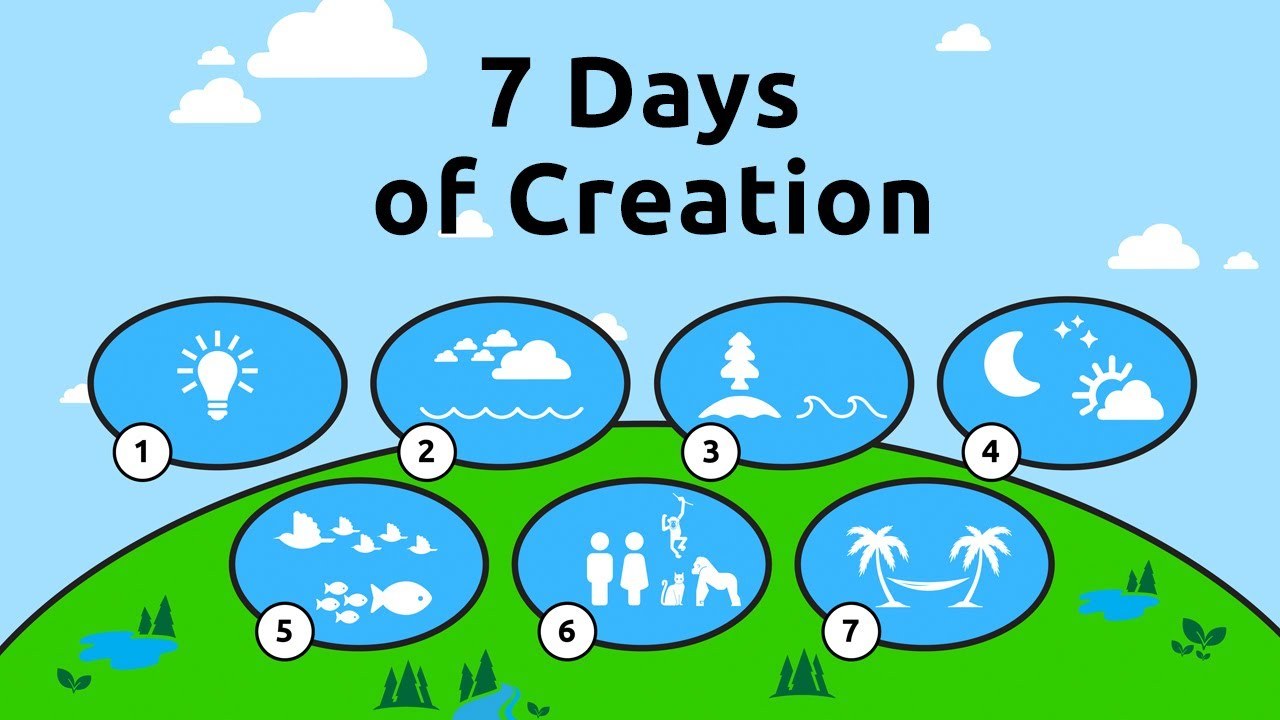The Seventh Day: Sabbath and Rest in Creation

At the culmination of the creation narrative in the Book of Genesis, a significant and profound moment occurs—the establishment of the seventh day as a day of rest, known as the Sabbath. This sacred day, marked by divine rest and reflection, carries enduring significance in various religious traditions and cultural contexts.
The creation story unfolds with a rhythm, detailing the formation of the cosmos in six days. Each day sees the emergence of distinct elements—light, sky, land, sea, plants, and animals. However, it is on the seventh day that a unique and intentional pause occurs. God, having completed the work of creation, rests, blessing and sanctifying the seventh day as a day of rest.
The concept of the Sabbath embodies more than mere cessation of labor. It conveys a profound theological and existential message about the nature of God, the rhythm of life, and the importance of rest and reflection. The Sabbath becomes a space for humans to emulate the divine pattern, acknowledging the need for rejuvenation and spiritual contemplation.
In Jewish tradition, the Sabbath is a central tenet, observed from Friday evening to Saturday evening. It is a day marked by rest from labor, communal worship, and the enjoyment of a festive meal. The Sabbath is considered a gift, a sacred time to connect with God, family, and self.
Christianity, while not strictly bound to the Saturday Sabbath observance, carries forward the theological concept of rest and renewal. Sunday, often recognized as the Christian Sabbath, commemorates the resurrection of Jesus Christ, emphasizing the spiritual rejuvenation that comes with the rest found in God.
The seventh day as a day of rest is not confined to Judeo-Christian traditions. Various cultures and religions incorporate similar concepts of a designated day for reflection, spiritual practice, and reconnection. The universality of the idea underscores its timeless relevance in addressing the human need for balance and renewal.
In a fast-paced, modern world, the idea of a designated day of rest holds particular significance. The Sabbath invites individuals to step away from the demands of daily life, fostering a space for reflection, gratitude, and connection with the transcendent. It stands as a counter-cultural reminder that true fulfillment is not found solely in ceaseless labor but also in intentional moments of rest and contemplation.
The seventh day, as a symbol of rest in creation, serves as a timeless reminder of the divine wisdom embedded in the fabric of existence. It prompts individuals to honor the rhythm of life, embracing the sanctity of rest as a source of renewal for the mind, body, and spirit. In observing the Sabbath, humanity participates in the ongoing narrative of creation, recognizing the importance of rest as a sacred and essential part of the journey of life.
At Kid's Study Bible, we are dedicated to making the Bible come alive for young minds. Our platform offers a rich blend of interactive maps, captivating stories, and engaging resources tailored for children. With a focus on accessibility and understanding, we break down major Bible sections, explore geography, and provide a kid-friendly glossary. Join us on this exciting journey of discovery, where we strive to make learning about the Bible a joyful and enriching experience for every child.
Introduction and Background
- Genesis
- Exodus
- Leviticus
- Numbers
- Deuteronomy
- Joshua
- Judges
- Ruth
- 1 Samuel
- 2 Samuel
- 1 Kings
- 2 Kings
- 1 Chronicles
- 2 Chronicles
- Ezra
- Nehemiah
- Esther
- Job
- Psalms
- Proverbs
- Ecclesiastes
- Song of Solomon
- Isaiah
- Jeremiah
- Lamentations
- Ezekiel
- Daniel
- Hosea
- Joel
- Amos
- Obadiah
- Jonah
- Micah
- Nahum
- Habakkuk
- Zephaniah
- Haggai
- Zechariah
- Malachi
- Matthew
- Mark
- Luke
- John
- Acts
- Romans
- 1 Corinthians
- 2 Corinthians
- Galatians
- Ephesians
- Philippians
- Colossians
- 1 Thessalonians
- 2 Thessalonians
- 1 Timothy
- 2 Timothy
- Titus
- Philemon
- Hebrews
- James
- 1 Peter
- 2 Peter
- 1 John
- 2 John
- 3 John
- Jude
- Revelation